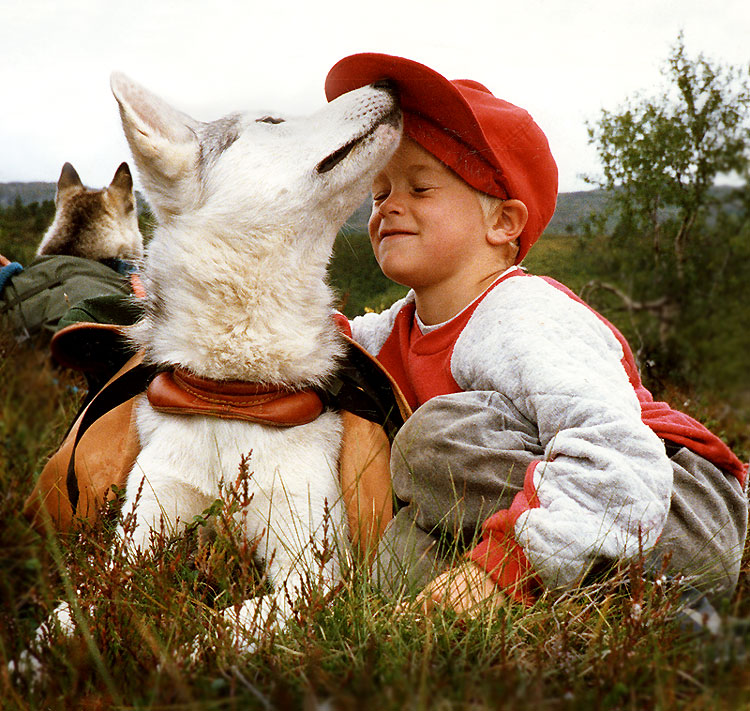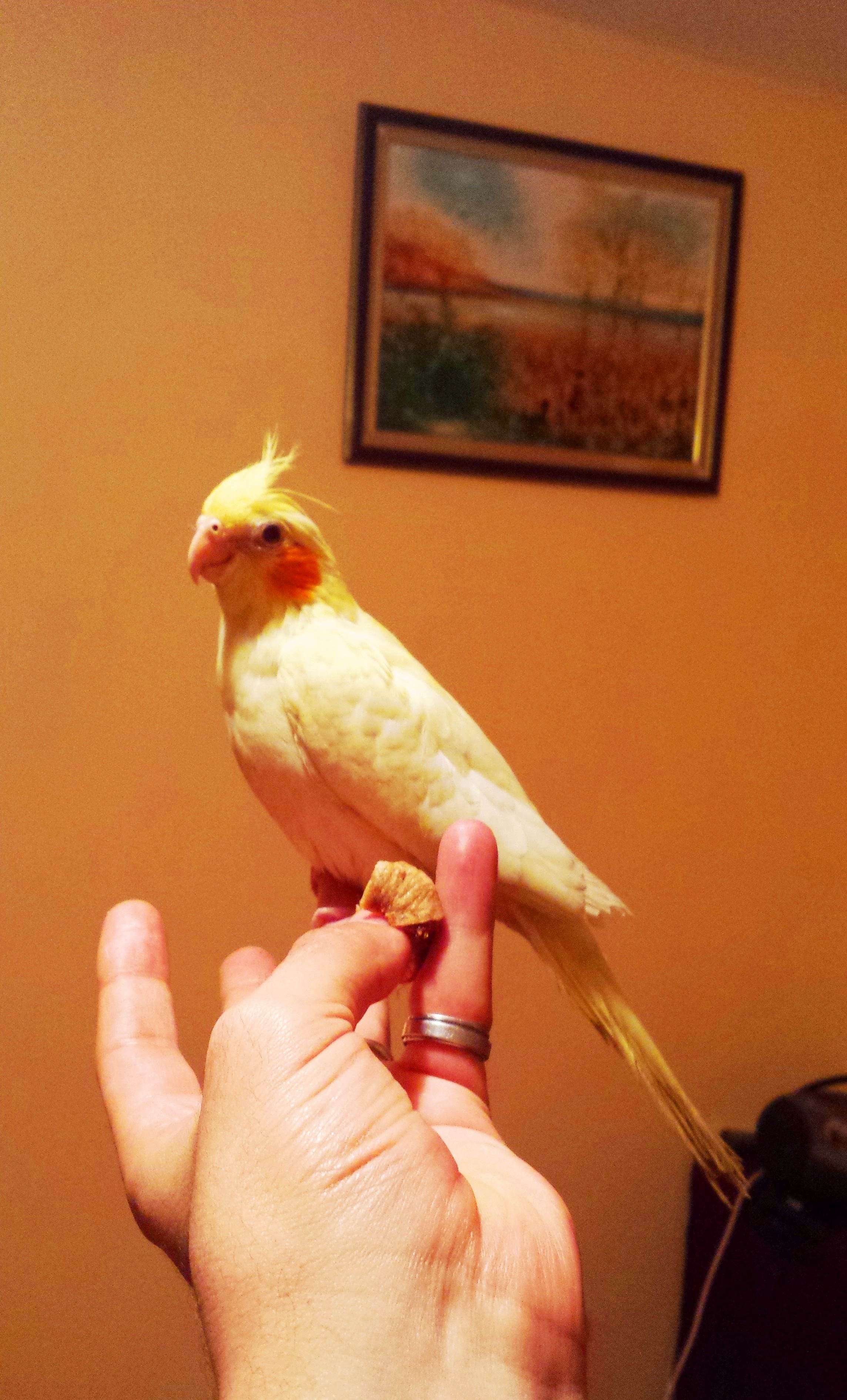The Psychology of Human Bonding | Why Do We Love Our Pets So Much?
By Martin Siegel, DVM, in Veterinarian
Most of us treat our pets like members of the family: we enjoy their company and we do everything we can to ensure their happiness and wellbeing, including providing them with veterinary care and emergency veterinary services when they are sick or injured. But it is not immediately obvious why human beings should bond so closely to members of other species, partly because we are virtually unique as a species in the fact that we choose to do so. In captivity, certain different types of animals can form social bonds and in the wild, some species coexist with others. However, this occurs much more often in the context of a symbiotic relationship than for friendship or companionship. Symbiotic relationships include situations where species benefit from one another’s protection from predators or parasites. More broadly, it seems  obvious that many animal species have a capacity to form close friendships with other species, as is evident in the way that our pet cats and dogs and many other types of pets (eventually) form close social bonds despite being different species that may be naturally antagonistic to one another or even predator and prey in the wild.
obvious that many animal species have a capacity to form close friendships with other species, as is evident in the way that our pet cats and dogs and many other types of pets (eventually) form close social bonds despite being different species that may be naturally antagonistic to one another or even predator and prey in the wild.
However, there are also other hypotheses, such as the biophilia proposed by Edward O. Wilson in 19841 (Harvard University Press), that suggest other explanations for the affinity of human beings toward other animal species. Specifically, Wilson argued that during evolutionary periods in early hominid history, there was a distinct survival advantage to observing and remaining close to other animals living in nature. The existence of other species thriving within an environment was consistent with the availability of essential life-sustaining elements (such as fresh water and edible vegetation); and early humans who gravitated toward animals had a distinct survival advantage over any early humans who kept their distance from animals. More fundamentally, and possibly for reasons that also relate to why animal-assisted therapy can improve human psychological wellbeing, there seems to be something inherently positive about being in the close proximity of other thriving living things.
Psychologists explain our affection for our pets in terms of several different possible contributing factors. First, humans have been breeding the species that we adopt as pets most frequently to have the physical characteristics that appeal to us, such as large eyes in relation to the head, in particular. All dogs are members of the same species (Canis familiaris), whether the short, squished noses of brachycephalic canine species like those of the Pug and Bulldogs, the floppy ears of the Labradors and Retrievers, or the skin folds of the Shar Pei, those characteristics were all products of artificial selection by human beings. They appeal to us the way they do simply because we bred them in the first place as much for those physical features that we consider so “cute” as for their other breed-specific characteristics and capabilities. The fact that we typically “infantilize” our pets (meaning that we treat them like infants throughout their entire lives) may have a lot to do with the emotions they evoke in us in conjunction with way the physical characteristics that we have bred into them appeal to our subconscious nurturing instincts.
Similarly, because our pets are entirely dependent on us, they probably trigger some of the same protective and nurturing instincts as do our own children. It is rewarding and “validating” to us to have another being be so dependent on us.
This concept of validation is extremely significant throughout the field of human psychology. Essentially, it means that we derive psychological comfort and satisfaction from being perceived positively by others, and especially, from being perceived the way we perceive ourselves. In human relationships, even the deepest love is “conditional” and with the possible exception of parental love for children, the love we may have for others today can change or even disappear altogether based on the choices, values, and beliefs of people we love, tomorrow. Meanwhile, the love that our pets (particularly our dogs and pet birds) have for us is virtually “unconditional.” Whereas we might sometimes lose the respect and love of other people because of things that we do or because of things they may find out they do not like about us, once we have an established bond with our pets, they continue to love us regardless of any personal flaws that might cause other people to stop loving us.
Therefore, our love for our pets is probably a function of multiple factors that contribute simultaneously to our deep affection for them. We may have evolutionary tendencies to derive comfort from being around other living things; we have bred into our pets the very characteristics that make them most appealing to us; our pets fulfill our need for validation because of their perpetual dependence on us; and (perhaps most of all), our pets love us unconditionally and in a way that is less susceptible to being lost than the love of other human beings.


I feel it interesting, your post gave me a new perspective! I have read many other articles about the same topic, but your article convinced me! I hope you continue to have high quality articles like this to share with veryone!
We love them because we’re supposed to. They love us too, for the same reason. And though I agree with your premises wholeheartedly, I would say simply that it’s a better world when you have a pet. They think so too.
I was excited to read this post, hoping it would answer a question I research every day: why people like animals when it seems to me completely counterintuitive that a normal, clean, healthy human who can speak, smell, see, and hear would want to be close to a creature whose barking and stench are the least foul of their attributes. But alas, I’m still in the dark. What I long to understand is why the disgusting smell and behavior and the incessant barking doesn’t bother dog lovers. If anyone out there can explain it or point me to a book or psychologist who can, I’d be eternally grateful. Needless to say. I’ve never harmed an animal nor would I, and I do consider dogs to be the saddest creatures on this earth, but the mere thought of one touching me, let alone getting any of its fluids on me, makes we want to throw up.
I feel sad for you.
I’m not an expert, but it sounds like you may be experiencing some form of sensory processing sensitivity. It’s not the dog you dislike so much as it is the way the dog makes you feel just by it being itself. Highly sensitive people often have strong emotional reactions to physical stimuli, and a dog may be triggering these responses.
This isn’t a disorder, it’s just a character trait. There’s nothing wrong with not liking dogs. After all, plenty of people like tarantulas as pets, and plenty of people hate spiders of all kinds. In most cases, though, people can train themselves to accept things they don’t like through careful exposure therapy.
You should definitely get a dog.
Perhaps you are one of those who do not get the release of oxytocin (the feel good love chemical) when you form a bond with them. I am a neat freak, but I have a tiny chiweenie that smells like baby shampoo, takes showers regularly and generally believes he’s a human. We even brush his teeth and take him to the doggy spa when he needs a manicure. His hair is so short and thin he just stays clean. He’s my fur baby. Maybe you just lack the oxytocin. Either way, Sorry you’ll never feel that bond, unconditional love is one of the best things in life.
I lost my bunny he was 2 years old and we went through so much together those 2 years and he was always there for me and I was there for him when he died in my arms was the most difficult I ever had to live in my entire life I never feel so much pain and my life isn’t the same since we left he was my reason to hurry come home after a long day working he was the light of my life